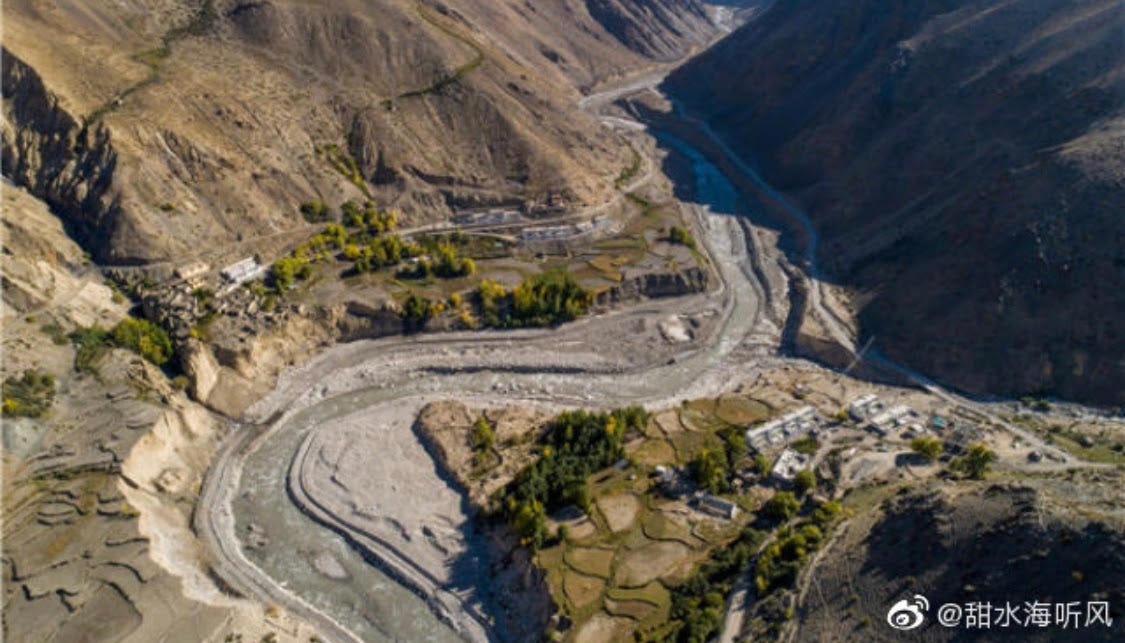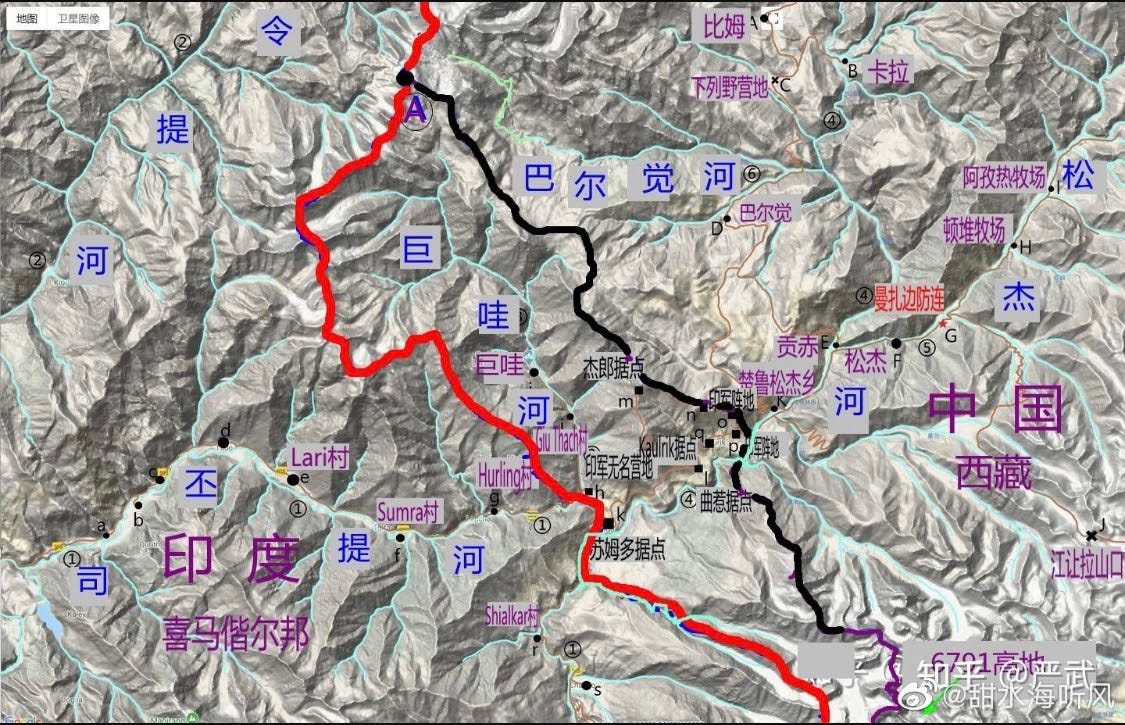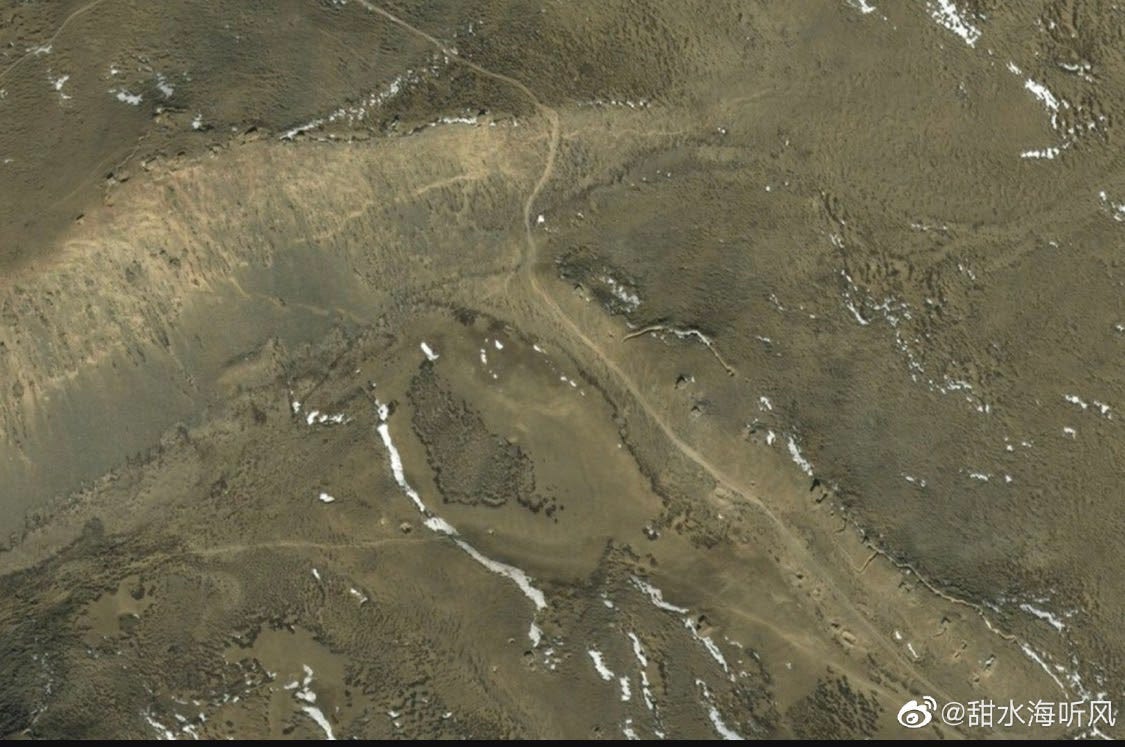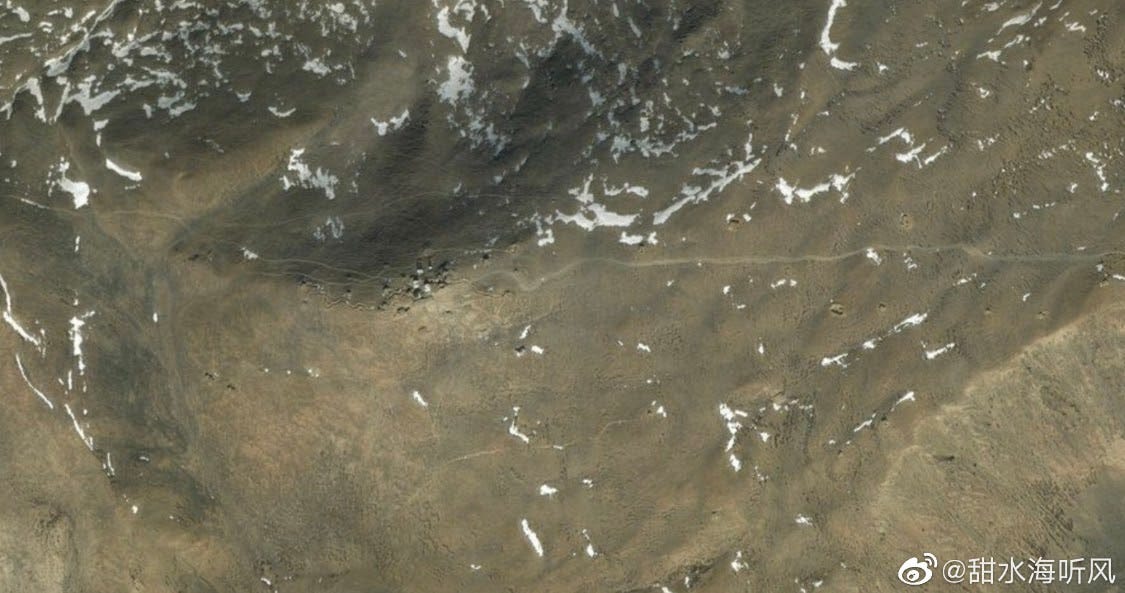Asia Communique — Week 32
Xi Jinping in Qiushi — India’s 5G trial decision — Hong Kong's RTHK under threat
Note: In the last edition, the second Weibo post comparing the construction of a hospital in Wuhan with the burning of pyres in India was shared by a Ministry of Public Security official account and not by the Legal and Political Affairs Commission. I had corrected it later. My apologies.
Xi Jinping in Qiushi
Chinese President Xi Jinping has been actively writing essays in Communist Party Journal, Qiushi.
“At present, the world is experiencing profound and unprecedented changes,” said Xi Jinping in January.
“Judging from how this pandemic is being handled by different leaderships and [political] systems around the world, [we can] clearly see who has done better,” Xi Jinping was quoted by SCMP based on an article in Qiushi.
“In today's world, the scarcest resource in the market. Market resources are a huge advantage of our country. We must make full use of this advantage and continue to consolidate and strengthen this advantage to form a strong support for building a new development pattern. Expanding domestic demand is not a one-time strategy to deal with financial risks and external shocks, nor is it to engage in flood irrigation, nor is it to increase government investment, but to establish an effective system for expanding domestic demand based on the actual situation of my country’s economic development. Unleash the potential of domestic demand, accelerate the cultivation of a complete domestic demand system, strengthen demand-side management, expand household consumption, and improve consumption levels, making the construction of a super-large domestic market a sustainable historical process” Xi Jinping wrote in Qiushi.
In the past week, Xi Jinping has called First Secretary of the Central Committee Miguel Díaz-Canel, President of Turkmenistan, Secretary-General of the United Nations, President of the Democratic Republic of Congo, President of the International Olympic Committee, and President of Sierra Leone.
CCTV published a story about Xi Jinping and his mother Qi Xin on the occasion of Mother’s Day.
“But Qi Xin never considered whether to stay with the children for a while, or even whether to change jobs and get closer to home. At that time, what she thought was to obey the organizational arrangements and not delay her work. Even when her child was seriously ill, she did not ask for leave” read the story by CCTV.
“The data show that Chinese citizens’ trust in their national government increased to 98 per cent. Their trust in local government also increased compared to 2018 levels — 91 per cent of Chinese citizens surveyed now said they trust or trust completely the township-level government. Trust levels rose to 93 per cent at the county level, 94 per cent at the city level, and 95 per cent at the provincial level. These numbers suggest that Chinese citizens have become more trusting in all levels of government,” reported the Washington Post.
“Michael Bloomberg, Henry Kissinger and Hank Paulson have picked Singapore over Beijing for their next annual conference on US-China relations, citing the government’s record on press freedom in part for the decision.
Bloomberg, the former New York mayor and owner of the eponymous financial information group, told the Financial Times that “logistics,” including Singapore’s Covid-19 safety record and the “very concerning” conditions in China for journalists, had persuaded them to hold the New Economy Forum in the city-state in November” reported Financial Times.
“Remnants of a Chinese Long March-5B carrier rocket re-entered the Earth's atmosphere at 10:24 a.m. (0224 GMT) on Sunday, with most of the debris burning up, according to the China Manned Space Engineering Office.
The debris is expected to land in the Indian Ocean at a location near 72.47 degrees east longitude, 2.65 degrees north latitude,” reported CGTN.
India’s 5G trial decision
India’s Ministry of Communication issued a press release excluding leading Chinese telecom companies Huawei and ZTE. The press release doesn’t explicitly mention Huawei or ZTE but instead says the trial will go ahead with 5G equipment provided by Ericsson, Nokia, Samsung, and C-DOT.
“The Department of Telecommunications (DoT), Government of India, approved today, permissions to Telecom Service Providers (TSPs) for conducting trials for use and applications of 5G technology. The applicant TSPs include Bharti Airtel Ltd., Reliance JioInfocomm Ltd., Vodafone Idea Ltd. and MTNL. These TSPs have tied up with original equipment manufacturers and technology providers which are Ericsson, Nokia, Samsung and C-DOT. In addition, Reliance JioInfocomm Ltd. will also be conducting trials using its own indigenous technology,” said the press statement.
The decision to exclude Chinese companies is quite similar to the decision by Canada in which the approved vendors were approved without excluding the Chinese companies in the name.
“Red-Cross China provides aid to India” was the second trend on Baidu on May 10.
Tibetan studies scholar Robert Barnett has published an exclusive story in Foreign Policy about a new village constructed by China on the northern border with Bhutan.
Excerpt from the story:
“Gyalaphug is, however, different: It is in Bhutan. Wu and a retinue of officials, police, and journalists had crossed an international border. They were in a 232-square-mile area claimed by China since the early 1980s but internationally understood as part of Lhuntse district in northern Bhutan. The Chinese officials were visiting to celebrate their success, unnoticed by the world, in planting settlers, security personnel, and military infrastructure within territory internationally and historically understood to be Bhutanese.
This new construction is part of a major drive by Chinese President Xi Jinping since 2017 to fortify the Tibetan borderlands, a dramatic escalation in China’s long-running efforts to outmaneuver India and its neighbors along their Himalayan frontiers. In this case, China doesn’t need the land it is settling in Bhutan: Its aim is to force the Bhutanese government to cede territory that China wants elsewhere in Bhutan to give Beijing a military advantage in its struggle with New Delhi. Gyalaphug is now one of three new villages (two already occupied, one under construction), 66 miles of new roads, a small hydropower station, two Communist Party administrative centers, a communications base, a disaster relief warehouse, five military or police outposts, and what are believed to be a major signals tower, a satellite receiving station, a military base, and up to six security sites and outposts that China has constructed in what it says are parts of Lhodrak in the TAR but which in fact are in the far north of Bhutan”
“China’s claim to these areas is recent. Both the Beyul and the Menchuma Valley were shown as parts of Bhutan on official Chinese maps until at least the 1980s. They still appeared as parts of Bhutan on official Chinese tourist maps and gazetteers published in the late 1990s. Still, today, even the maps published on China’s official national mapping site, tianditu.gov.cn, vary widely as to which parts of the Beyul are claimed by China and which are not”
I will highly recommend reading the full story in Foreign Policy.
A personal reflection
A Chinese blogger with the Weibo name “Chairman Rabbit” has tried to defend the comparison made by the Legal and Political Affairs Commission.
“The main problem of "igniting" microblog is: the comparison is between China and India. I can understand the simple perspective of the Chinese people - this kind of comparison between countries is actually a comprehensive comparison: comparing system, people, culture, and comprehensive evaluation. But this perspective is very different from that of the West. I often write that most countries influenced by the West and Western civilization will distinguish political parties, politicians, and governments from civil society / civil society/people, and they are often in opposition. Relatively speaking, the general Chinese people have a more national sense and regard the country, society, and individual as a whole (compared with the west, of course)”
I am not surprised by this type of defence by “Chairman Rabit”. The Weibo account has often defended the Communist Party of China (CPC) as a unique institution that stands apart from Western understanding government and society. “Chairman Rabbit” falls back on a “unique” amalgamation of society and politics to explain all types of phenomena about the CPC.
Is Chinese society a different subset of the human experience in the anthropological sense? Many Chinese intellectuals have forwarded that argument, but this argument enters tricky territory which these intellectuals don’t want to face.
I think it’s more about the pursuit of power than the “uniqueness of Chinese society”.
I quote from Marshall Sahlins’ The Western Illusion of Human Nature:
‘Thucydides’ description of the ensuing breakdown of civil society is similar to his account of the plague at Athens; indeed he conveys the sense of an epidemic diffusion of these political “convulsions,” becoming ever more malignant as they spread from city to city. For the plague here unleashed was human nature: “human nature, always rebelling against the law and now its master, gladly showed itself ungoverned in passion, above respect for justice, and the enemy of all superiority.” “The cause of all these evils,” he said, “was the lust for power arising from greed and ambition, and from these passions proceded the violence of the parties engaged in contention” But when Thucydides asserted that such suffering would ever be repeated-with varying “symptoms” - “so long as human nature remained the same,” John Adams broke off his own exposition of the text to say, “if this nervous historian had known a balance of three powers, he would not have pronounced the distemper so incurable, but would have added-so long as parties in the cities remained unbalanced”’ (The Western Illusion of Human Nature)
India-China border developments
“Residents of border villages of Shaktot and Churup, who have started sowing crops, noticed that the PLA has operationalised its stone-crusher for raw material to build the post. An Indo-Tibetan Border Police (ITBP) recce team also reported seeing PLA officials inspecting the road and footbridges across the Pareechu, a tributary of the Spiti river,” reported Hindustan Times.
A military commentator has shared a detailed description about Kaurik village:
“This Kaurik village is located in the Quja region of India-Occupied my country (see Figure 3), adjacent to Chulu Songjie Township in my country (Figure 4). The strategic location here is important. From here, you can go straight into the hinterland of India along the NH22 strategic highway, and it is only 380 kilometres away from the Indian capital New Delhi. However, our way here is difficult and dangerous. It is one of the few townships that have not undergone democratic reforms. In 1985, a working group was established and entered Chulu Songjie to formally establish the township government.
India accuses us of building a new outpost, but in fact, India has far more fortifications and facilities here than us, such as the bunkers and trenches built on the edge of Figure 5-6. At present, there are very few areas where India can provoke on the Western Front. Is it because the hype is to move to the middle section, where our deployment is relatively inconvenient?”
Hong Kong’s RTHK under threat
“Over the weekend, the embattled Hong Kong public broadcaster Radio Television Hong Kong (RTHK) announced that it would begin deleting its own programming from the internet, including all content over a year old. It is a chilling move by the broadcaster, which has been embroiled in turmoil following a change of management with the appointment of civil servant Patrick Li as its Director of Broadcasting in February. On Monday, the broadcaster also formally fired Nabela Qoser, an outspoken RTHK journalist who gained widespread recognition during the 2019-2020 protests for her hard-hitting questioning of public officials,” reported China Digital Times.
“That doesn’t mean the RTHK can’t have programmes that also criticise the government, but it has to be done in an objective and fair manner, without bias and prejudice.” Hong Kong Chief Executive Carrier Lam was quoted as saying.
“The moves have prompted some to question if the government is trying to rid RTHK of employees and shows deemed too critical of government policy while crafting a new role for the broadcaster: staunch administration supporter,” said SCMP.
Scarborough Shoal crisis
This week there was another chapter to the Whitsun Reef crisis after the Philippine Foreign Minister Teodoro Locsin tweeted an “expletive-laced tweet”.
On May 5, the Philippines foreign ministry accused China of blocking coastguard patrols near Scarborough Shoal in the South China Sea.
“The Huangyan Island (Scarborough Shoal) is China's territory and its adjacent waters are under China's jurisdiction. China urges the Philippine side to earnestly respect China's sovereignty and jurisdiction, and stop taking actions that may complicate the situation. Facts have proven time and time again that megaphone diplomacy can only undermine mutual trust rather than change reality. We hope that certain individuals from the Philippine side will mind basic manners and act in ways that suit their status” said Chinese foreign ministry spokesperson Wang Wenbin.
The Philippine Foreign Minister Teodoro Locsin later apologised to Wang Yi for his remarks on Twitter. The Philippine Foreign Minister has apologised to Wang Yi was the number one trend on search engine Baidu in May.
“Just as Philippine President Rodrigo Duterte said, the differences and disputes between the two countries on some issues should not affect the overall friendship and cooperation, which is also an important consensus reached by China and the Philippines on many occasions. China has always been and will remain committed to properly handling differences and advancing cooperation with the Philippines through friendly consultation, and will continue to provide assistance within its capacity to the Philippines in its efforts to fight the epidemic and resume economic development” Ministry of Foreign Affairs reported.
“Analysts say President Rodrigo Duterte’s approach to Beijing’s increasingly aggressive assertions in the waters will influence the position of contenders to succeed him in the vote next May, which Duterte cannot contest because of the one-term limit,” said SCMP.
“Kyrgyzstan and Tajikistan are both China's friendly neighbours and comprehensive strategic partners. We hope and trust that they will properly resolve differences and disagreements in the spirit of mutual respect and friendly consultation to jointly safeguard regional peace and stability,” said Wang Wenbin in response to a question about the recent border clash between Kyrgyzstan and Tajikistan.
China in Focus I: Defence Industry and Technology Base — Janes
“To my knowledge, freight air routes from China to India are operating normally. In the past two weeks, a number of freight flights from China to India remain in operation. Relevant Chinese authorities have provided and are providing convenience in customs clearance and transportation for India to transport liquid oxygen tanks, oxygen concentrators, and other materials from many cities in China. China will continue to ensure the smooth functioning of the export channel of materials to India,” said MFA Wang Wenbin.
“A Chinese offshore supply vessel and its 12 crew members were detained Friday after they were caught trespassing in Taiwanese waters off the coast of Penghu, the Coast Guard Administration (CGA) said Saturday.
In a statement, the Coast Guard said the ship was the third Chinese vessel it has detained in Taiwan's waters since China's summer fishing ban in the South China Sea started on May 1, as well as its first-ever seizure of a Chinese supply ship”
“Former Maldives president Mohamed Nasheed was injured in a blast outside his home on Thursday, local media reported.
Images from state TV channel PSM showed security services securing the scene of the incident in the capital Male. A foreign tourist was also injured, the channel reported” reported Reuters.
Don’t Miss Out
‘“It’s an interesting compilation and combination—almost an amalgam—of elements from President Obama and President Trump,” said Kurt Campbell, coordinator for Indo-Pacific affairs at the National Security Council, at The Wall Street Journal’s CEO Council Summit. “I think there is wisdom in some of each approach, even though there’s some contradictions as well,”’ reported Wall Street Journal.
“The EU has suspended efforts to finalise its massive investment deal with China, given the soured diplomatic relations between both sides after tit-for-tat sanctions, the EU's top trade official said on Tuesday”, AFP reported.
“The regulation, to be announced by EU competition supremo Margrethe Vestager on Wednesday, is part of Europe's hardening stance against Beijing, all while China remains the continent's second biggest trading partner after the United States,” said AFP in a different report.
“The European Union and India agreed to resume stalled free-trade negotiations and seek closer cooperation to combat climate change at a virtual summit on Saturday, as concerns about China bring Brussels and New Delhi closer”, reported Reuters.
“As part of the Biden administration’s efforts, China dominated the agenda Tuesday on the second day of a meeting of Secretary of State Antony Blinken and his counterparts in the Group of 7 industrialized democracies”, reported Wall Street Journal.
“The World Health Organization on Friday gave its first endorsement for a Chinese-made Covid-19 vaccine, clearing a shot from the state-owned firm Sinopharm for global use” reported Wall Street Journal.
“Electric vehicle maker Tesla Inc, facing scrutiny in China over safety and customer service complaints, is boosting its engagement with mainland regulators and beefing up its government relations team, industry sources said.
Tesla's change of strategy leading to more behind-the-scenes interaction with policymakers in Beijing compared to relatively little previously shows the seriousness with which the U.S. automaker views the setbacks in its second-biggest market,” reported Reuters.
“A Chinese military unit that was accused last month by Japanese authorities of carrying out a years-long cyber-espionage campaign was seen buying batches of different western-made antivirus products”, reported Recorded Future.
“According to multiple procurement documents found by Recorded Future’s Insikt Group, Unit 61419 of the Chinese People’s Liberation Army (PLA) bought small batches of different antivirus products in early 2019.
The purchases, carried out through local intermediaries, were for antivirus products from companies such as Kaspersky, Bitdefender, Trend Micro, ESET, Dr Web, Sophos, Symantec, McAfee, and Avira” reported Recorded Future.
“According to the Cambridge Centre for Alternative Finance, roughly 70% of the hash rate for mining Bitcoin—that is, the processing power for verifying transactions on the blockchain’s ledger—is generated in China. The mining operations are clustered within a few geographies well-suited for housing large data centres: areas with low rents, temperate climates, and reliable access to cheap electricity,” reported Fortune Magazine.
“Based in the central riverside city of Wuhan, Yangtze Memory is considered at the vanguard of the country's efforts to create a domestic semiconductor industry, already mass-producing state-of-the-art 64-layer and 128-layer NAND flash memory chips, used in most electronics from smartphones to servers to connected cars.
So far, Yangtze Memory, also known as YMTC, has remained under the radar of the U.S. government. But the company is taking no chances. With the guidance of Beijing, it has launched a massive review of its supply chain in an effort to find local suppliers -- or, at least, non-U.S. ones -- to replace the current dependence on American technology” reported Nikkei Asian Review
Two Khampas, who will be on the right side of history? — Tibetan Review
PodWorld
China’s Heart of Darkness — Sinica Podcast
Mover and Shakers
THE CRISIS AFTER THE CRISIS: HOW LADAKH WILL SHAPE INDIA’S COMPETITION WITH CHINA — Arzan Tarapore
China and Russia’s Dangerous Convergence — Andrea Kendall-Taylor and David Shullman
Off Track Reads
Will going digital transform the yuan’s status at home and abroad? — The Economist
The Prize: Why Taiwan and its Place in the Global Semiconductor Supply Chain Matter to the United States — Jamestown Foundation
Western companies in China succumb to Stockholm syndrome — Financial Times
Upcoming Watch
US, France and Japan will conduct joint military drills on the southern island of Kyushu on Saturday.










